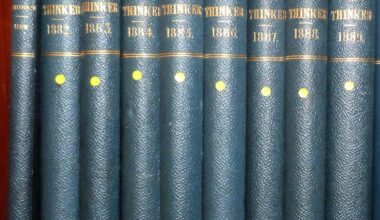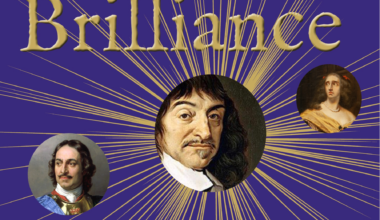
Elon Musk, in a recent conversation with Jordan Peterson, suggested that he was ‘probably a cultural Christian.’ Without being particularly religious, he claimed he was a ‘big believer in the principles of Christianity’, among which he named forgiveness. He also said that the Christian pronatalist presumption would probably ‘lead to a better society.’ Richard Dawkins, who is famous for being notoriously anti-religious, recently suggested that he does not wish for an end to Christian traditions in England because ‘I love hymns and Christmas carols and I sort of feel at home in the Christian ethos.’
In this article, I want to explain why I am a ‘cultural non-Christian.’ This does not necessarily mean that I am a non-Christian. It just means that, culturally, I am a non-Christian. Furthermore, though I can understand why somebody would see their embeddedness in a historic Christian culture as a fact, I understand much less why this cultural experience should be transformed into a political movement or an ideology.
The term ‘cultural Christian’ is shorthand for an attitude that rejects the supernatural claims of Christianity but still admits to being culturally determined by a historical context shaped by Christianity. Many people have embraced what Christian critics call ‘Christianity lite’, that is, Christian culture without miracles and divinity. Some people value moral ideas like humility or the sanctity of the individual, which they believe makes them ‘somewhat’ Christian in a cultural way. This leads to paradoxical labels. Slavoj Žižek has called his most recent book Christian Atheism, and French President Emmanuel Macron identifies himself as an ‘agnostic Catholic.’ Jordan Peterson adhered to a similar line when he said on television ‘I act as if God exists’ (emphasis added).
First, I wonder how deeply these people have actually examined their cultural contexts. In my own cultural environment, I find little that can really be identified as Christian. Instead, I notice that it is replete with almost anti-Christian elements. I might find a few secularized cultural components that were formerly Christian, but there is nothing powerful enough there to lead me to conclude that I am a cultural Christian. As a European or as a Westerner, I am culturally determined by secularism, the Enlightenment, the freedom to speak up against religion, and the overcoming of religion.
In my opinion, many non-practicing Christians are not as culturally influenced by Christianity as they think
Cultural Christians tend to list qualities like respect for the individual, loyalty, or self-control as core Christian values that they still believe in. However, beyond the fact that such values can be found in practically any religion, these cultural principles have reached most of us in already highly secularized forms. Human rights and equality are secular ideas. Why should one insist on their Christian origins (a highly debatable proposition, anyway)? Many such principles could just as well be traced back to the ancient Greeks, and I could thus declare myself a cultural Greek. A kneejerk reaction might suggest that it is simply a difference in temporal distance that makes such an idea less feasible, but is the legacy of Greek philosophy really that much more distant than the Biblical origins of Christianity?
In my opinion, many non-practicing Christians are not as culturally influenced by Christianity as they think. They might imagine they are, and they may even want it to be true; but often, it is a highly secularized form of ‘Christian culture’ that they have experienced. The libidinal and subliminal reasons why these people attribute secular phenomena to Christianity might be interesting for their own sake, but they are irrelevant here.
We appreciate European culture, but to what extent is this culture actually Christian? Churches and their distinctive architecture can be used to illustrate a broader point here. When the Notre Dame of Paris burned in 2019, plenty of non-religious people were sincerely struck by this cultural loss and expressed a desire to have this monument quickly repaired. But this outpouring of emotion cannot simply be attributed to some kind of latent religiosity. It is more likely that the structure as a historical monument and a great example of Gothic architecture were what mattered to many, rather than its religious significance.
How many people who enjoy Bach can actually relate to the lyrics of the St. Matthew Passion?
I appreciate much of the architecture that has been built by Christians, but I do not appreciate it as ‘Christian architecture.’ I appreciate it in the same secular way in which one might appreciate any architecture. The same goes for ideas and concepts that might once have been the preserve of Christian theologians but are no longer used in a Christian sense. Perhaps one of the most obvious examples is Christmas, which many celebrate without celebrating it as a Christian event. One could even go to Mass and enjoy it as a spectacle without it meaning that one is Christian in any way.
Theoretically, one could build a new Gothic cathedral and make it non-denominational, that is, build one that can be used by Buddhists, Hindus, Muslims, and Christians alike. Many who think of themselves as ‘cultural Christians’ might not be dissatisfied with such a monument in their city and might even view it as an example of foreign ideas being well integrated into their own culture. They are cultural Europeans rather than cultural Christians. In a similar vein, Dawkins mentioned that he enjoys listening to Christian hymns, and I believe that it is rather the music than the religious lyrics that he appreciates. He too is arguably a cultural European more so than a cultural Christian. How many people who enjoy Bach can actually relate to the lyrics of the St. Matthew Passion?
What we are really influenced by as Europeans and what really gives us an identity as Westerners is not religion but the liberty to act against obscurantism and religion. Hungarian Prime Minister Viktor Orbán, in a recent speech, suggested that Europeans should look to Christianity in order to reinstall meaning and purpose in a European society that has lost its moral compass. He does not seem to be aware that he suggests something that is deeply alien to a European culture that was born out of a revolution against religious authoritarianism. Unknowingly, by insisting on archaic Christian roots, Orbán, Peterson, and Musk push the West towards a worldview with which Christianity bears strong similarities: Islam.
Islamic societies continue to be much more strongly influenced by religion, and the idea of a ‘cultural Muslim’ is unnecessary because Islam is the only cultural reference point available: religion and culture almost entirely overlap, or are at least perceived to. Simultaneously and paradoxically, when the religious reference point is so strong that non-religious cultural aspects quasi-disappear, the idea of a ‘cultural Muslim’ becomes nonsensical and practically synonymous with the notion of a ‘cultural non-Muslim.’ A cultural Muslim is de facto a non-Muslim.
When Dawkins values cultural Christianity as a ‘bulwark against Islam’ he is clearly missing the point. The only bulwark against Islam would be secularism.
This is also the case for Christians, but for them, this paradox is less obvious. Westerners tend to have many more non-religious reference points, with the result that the concept of ‘cultural Christianity’ assumes a stronger connection to the religion than would exist if one identified more strongly with other cultural referents. Because one could choose another identity, the choice of Christianity holds more weight. Typically, when a Muslim says that they are only ‘culturally’ Muslim, the assumption is that they are in fact no longer Muslim. When a Christian says that they are ‘culturally’ Christian, the emphasis is that they are still somehow Christian. In Western societies, culture and religion can be more naturally perceived as two distinct things, and Musk et al plead not for a distinction but for a further confusion of cultural and religious aspects. It remains a strange choice. For example, Musk could simply talk about family policy boosting birth rates; why does he need Christianity to make his point?
I concede that the idea of being a ‘cultural Christian’, with which I personally cannot empathise, might be genuinely felt by some. However, there is no reason to turn this vague feeling into a movement or an ideology. This is precisely what Musk et al are doing. And when Dawkins values cultural Christianity as a ‘bulwark against Islam’ he is clearly missing the point. The only bulwark against Islam would be secularism.
I feel that you want to ask me now if I am a Christian or a non-Christian without the prefix ‘cultural.’ But this is not the topic of the article. Here I merely wanted to explain why, in cultural terms, I cannot be a Christian.
Related reading
Do we need God to defend civilisation? by Adam Wakeling
The Enlightenment and the making of modernity, by Piers Benn
The case of Richard Dawkins: cultural affiliation with a religious community does not contradict atheism, by Kunwar Khuldune Shahid
New Atheism, New Theism, and a defence of cultural Christianity, by Jack Stacey
Against the ‘New Theism’, by Daniel James Sharp
Can the ‘New Theists’ save the West? by Matt Johnson
A reading list against the ‘New Theism’ (and an offer to debate), by Daniel James Sharp







6 comments
I appreciate the point you’re making, but “secularism, the Enlightenment, the freedom to speak up against religion” didn’t emerge ex-nihilo in the Western world. It arose (paradoxically) out of Christian concepts and assumptions developed over centuries. As Tom Holland put it, whether we recognise it or not, “we’re goldfish swimming in Christian waters”.
Kelly is absolutely right. Botz-Bornstein should read Tom Holland’s book (‘Dominion: How the Christian Revolution Remade the World’) to take on this issue in cultural-historical terms. In the terms of Botz-Bornstein’s book, I think this article shows that he does not like Christianity (or Islam) and that he does like secularism. His book (‘How Much Religion is Good for Us?’) lucidly and provocatively suggests that anyone’s adhering to a religion (or cultural ideology) is fundamentally a matter of liking it. The article could hardly be more clear and definite about the personal question it wants not to answer nor even to allow to be raised.
William, this is not about what one likes or does not like, but about what one is or is not. And I hold that many people who say they are cultural Christians, are not.
The problem is that it is paradoxical. Should I say that I am a Christian just because I am a non-Christian? Holland’ s point is certainly interesting in and of itself, but I see it as unrelated to the argument I am trying to develop here.
“What we are really influenced by as Europeans and what really gives us an identity as Westerners is not religion but the liberty to act against obscurantism and religion. ”
-amen
Enlightenment ideas and values stretch back to the Greek atomists, through Lucretius, Vanini, Bruno, Montaigne, Machiavelli, Montesquieu, Hobbes, Spinoza, Locke, and Hume. These (and many others not listed) are the thinkers who steered Western culture to its present state. I can think of few important ideas valued in Western culture that aren’t championed in Spinoza’s Theological-Political Treatise (1670).
‘Cultural Christians’ want to acknowledge their own historicity. That’s great. Unfortunately, they voice with a very muddled concept, ‘Christianity’, which they tend to conceive as a self-identical and persistent notion. Of course we’d love to hear them say quite which Christianity they mean (Thomas Müntzer or Pius IX?), but the exceptional status, which secularism must grant ‘religions’ (self-evident, persistent, continuous, etc.) to justify its own existence, spare them this sort of reflections.
As far as I can tell, ‘cultural Christians’ are the reverse of the ‘spiritual but not religious’ medal: the one an undemanding reduction of religion to public identity, the other a stripping of experience from any collective commitments.
Your email address will not be published. Comments are subject to our Community Guidelines. Required fields are marked *
Donate